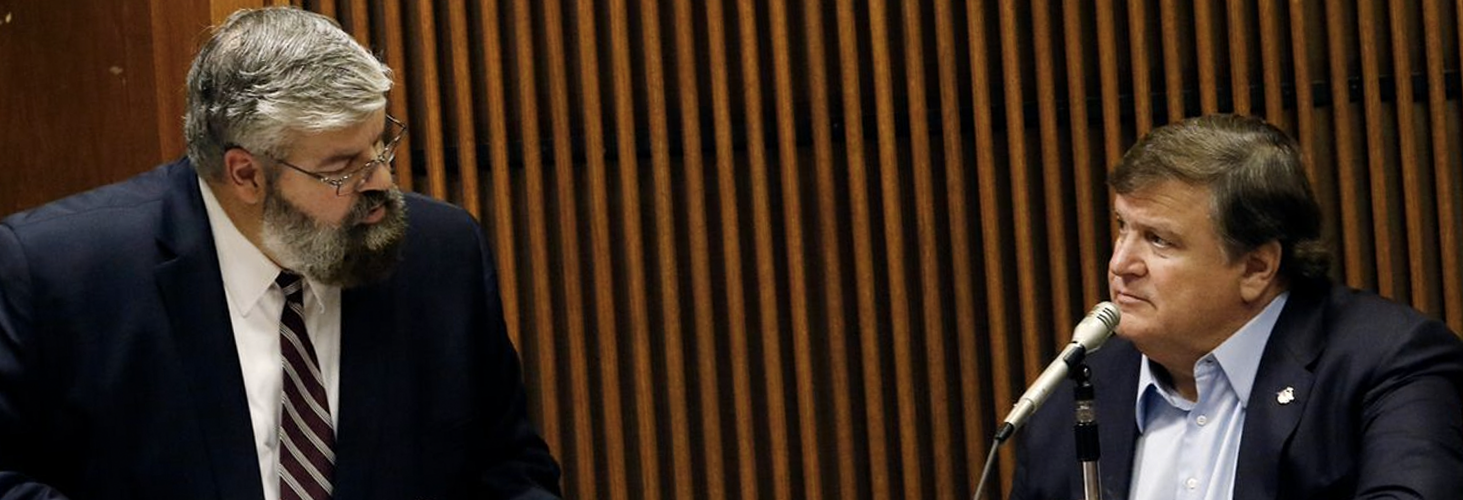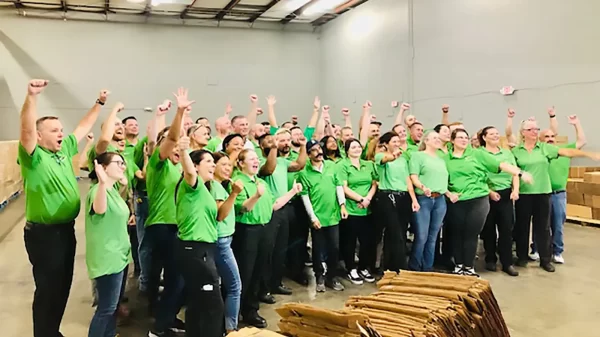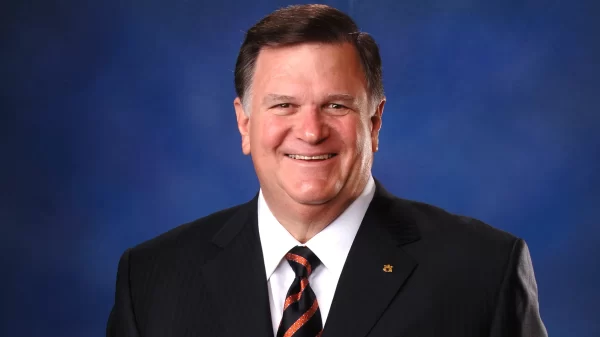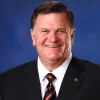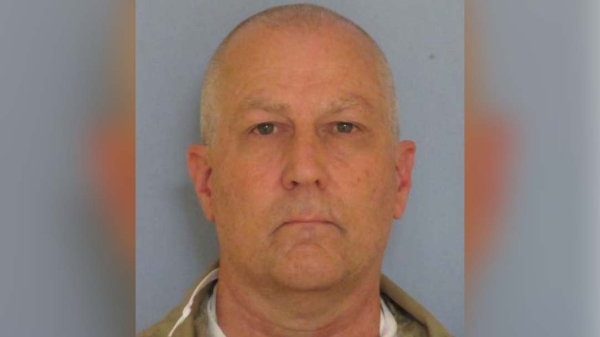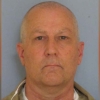By Bill Britt
Alabama Political Reporter
OPELIKA—On Day seven of the Speaker Mike Hubbard criminal public corruption trail, we heard testimony from Bobby Abrams, Rob Burton, and Jimmy Rane.
Abrams, who owns the company Capitol Cups, paid Hubbard $10,000 a month ostensibly to sell cups. Abrams admitted that if Hubbard had secured the letter for his patent in a timely fashion, it would have saved him millions of dollars. And while Hubbard was successful in moving the process forward, it was too little-too late; but he really appreciated his help. It was evident that Hubbard would not have had any success if he were not Speaker of the House.
Up next was Tina Belfance, general manager for Capitol Cups. She testified that even though Abrams had contracted with Hubbard on October 1, 2012, for $10,000 per month, it wasn’t until late November that she met with him to discuss the project: “almost two months later.” She said that at their initial meeting, he offered to give her Chick-fil-A, Waffle House, and Publix buyer’s contacts, but he only provided the contact information, and no further assistance with Waffle House or Publix. She did admit to the Prosecution that she was “the woman” at the Chick-fil-A meeting, which was how Josh Blades described her in earlier testimony, when he said the Speaker dropped by for a meeting with his client while on business for the State. Belfance testified that Hubbard had given her “valuable” contacts, although she has yet to sell any products to any of the companies. An email from Hubbard to Belfance was presented as evidence, where Hubbard stated he was in Scotland at a legislative conference, and had contacted a senator from Georgia who might be of help with Waffle House.
In an email to Clayton Hollis and Michael Mitchell of Publix, Hubbard stated that he was contacting them on behalf of a company in his district while not revealing Capitol Cups as his client. In the last line of the email Hubbard writes, it would “mean a great deal to me if such a meeting could be arranged.” The signature line read Mike Hubbard, Speaker of the House.
On the witness stand Jimmy Rane came across as Hubbard’s true friend, which definitely helped the defense. His folksy style and colorfully personality was fully on display. as he talked about the fresh-faced kid who helped Bo Jackson win the Heisman Tropy. The Yella Fella said his $150,000 investment in Hubbard’s failing business was an act of friendship, but he also admitted he was a principal who hired lobbyists. State Ethics Laws clearly state a principal or a lobbyist cannot ask for or give a thing of value to a public official. He testified that he didn’t know that Hubbard was getting paid $12,000 a month from the Southeaster Alabama Gas District (SEAGD) when he helped Rane try to revive an Abbeville manufacturing plant at Rane’s request. And he acknowledged that Hubbard and others helped him sell his former alma mater, Marion Military Institute, to the State. Hubbard’s defense lawyer, Bill Baxley, made plenty of hay out of how Hubbard and Rane were all about creating jobs that would help the folks and the children. As one court observer snidely remarked, “It always about the children, you know.” All in all, Rane has been the most effective defense witness.
Rob Burton, President of the titan, Hoar Construction, was a far less credible witness. He didn’t seem to know much about his own business, who did what, and even if he believed that he, himself, the head of the company and business manager, was actually the principal. He said the company hired lobbyists, but that was for business development. When shown State records showing Dax Sawtek and his firm SHR were his lobbyists, he said they didn’t lobby in the State House on his company’s behalf.
Burton testified that he made a $150,000 investment in Hubbard’s troubled printing business because he was a friend. Under direct examination, Lead Prosecutor Matt Hart asked about the friendship. He told Hart, he and Hubbard attended football games together and that Hubbard had invited him and his son to a game where they toured the sideline and press box. When pressed on the issues, Burton acknowledged that both he and Hubbard held season tickets to Auburn games, and that only once had Hubbard given them any special treatment at a game; and that was around 2003. Burton also said he and Hubbard would often go to functions together. Again, when pressured by Hart, he confessed that these were mostly political events and fundraisers he attended because he was a republican like Hubbard.
He later said after Hubbard had pitched him on the investment, he called his old High School friend, Will Brooke. Brooke is the investment banker who drafted Hubbard’s turn around plan, and had himself invested $150,000. Burton said he wanted Brooke’s assurance that it was a good investment. Brooke assured him it was.
How good a day was it for Hubbard? Only the jury knows.
The testimonies of Josh Blades, Jim Sumner, and Dax Sawtek appeared to crucify him.
But, it only matters if the 12 individuals sitting in judgement believe them.








































